The drive to Erez checkpoint is deceptively bucolic as the rain trickles through lush rolling farmland, vineyards, fruit trees, wineries reminiscent of the valleys of California; but the signs for Ashdod, Asheqelon, and Sederot lend that ominous feel: memories of Israelis, bomb shelters, PTSD, and Qassam rockets. Beyond these troubled border towns, sprawls the ominous military terminal that is the only way currently to get in or out of Gaza from Israel if you are not a vegetable or an approved piece of construction.
Erez was built to process 35-40,000 travelers a day and currently does a tenth of that when things are quiet. I am hoping for quiet. Last November, the Physicians for Social Responsibility delegation waited for three hours at the first checkpoint, today we are literally waved through. Then there is a large open plaza with particular places to enter for particular papers and stamps. While everyone sails through, I am asked to wait for some extra security checks, I can see one of the computers but it is all little boxes and Hebrew. I so wished I had paid more attention in Hebrew school. Finally, the security officer asks me about my trouble at Ben Gurion airport, (so this is what they know!) and I explain that yes I have had a Jawal phone card, that I am involved with an exchange program with Harvard and Al Quds medical students and yes I do like to go visit the students I get to know in Ramallah but you know that is how doctors are, smile smile and gee, how many hours do you work in this box, it must get really, really tiring, gesundheit, are you getting a cold?…. She stamped my passport. (So here is a persnickety question: if Gaza is no longer occupied and Gaza is not part of Israel, then why do Israelis get to decide who gets to go in? Academically speaking of course).
Forgive me if I do not get this exactly right, but after passport control, we drag our bags through grey Metal Door 6. There is a huge open building like a big half-finished warehouse and then a series of long walkways, hallways, turnstiles (although they agree to open a metal door for us each time since we have a ridiculous amount of luggage carrying supplies for Gaza and squeezing through the turnstiles would have been a humiliating joke.) Cameras are everywhere. We finally emerge into a corridor on the other side of the concrete wall and gun towers surrounded by a sea of bright yellow flowers defying the dangers of the buffer zone/no man’s land where several brave and probably desperate shepherds follow their munching curly cream colored flocks at the risk of being summarily shot. We are met by a cluster of tuk tuks, load up our bags and cases of 1 ½ liter bottles of water, (remember we are heading to the land of salinized water, depleted aquifers, and bombed sewer treatment plants), and start the ¾ mile walk down the wire fenced corridor to the Hamas version of passport control and a search of all the luggage. There is a large ominous poster warning Palestinians not to collaborate with Israelis. A smiling woman paws through my bags, but her eyes are laughing and friendly, another man also in uniform grins and says, “Welcome to Gaza.” Then another short taxi ride and finally, the vans from Gaza Community Mental Health Program are waiting and a nimble, sun-browned man, probably in his sixties, scampers up to the roof rack and starts piling up our luggage. I learn a new very helpful Arabic word: mish mushkela – no problem.
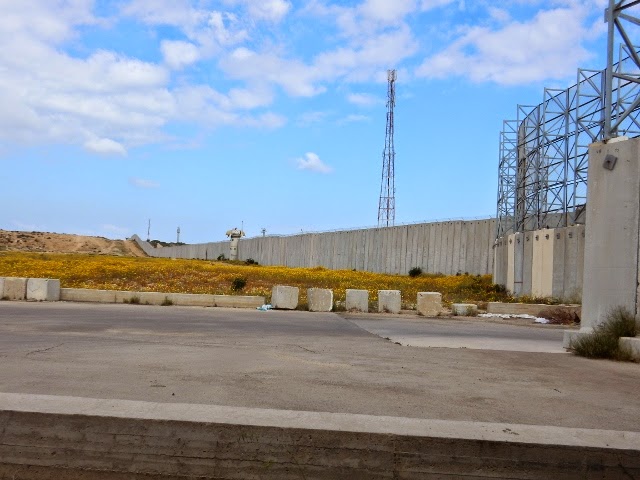 Eretz Crossing
Eretz Crossing
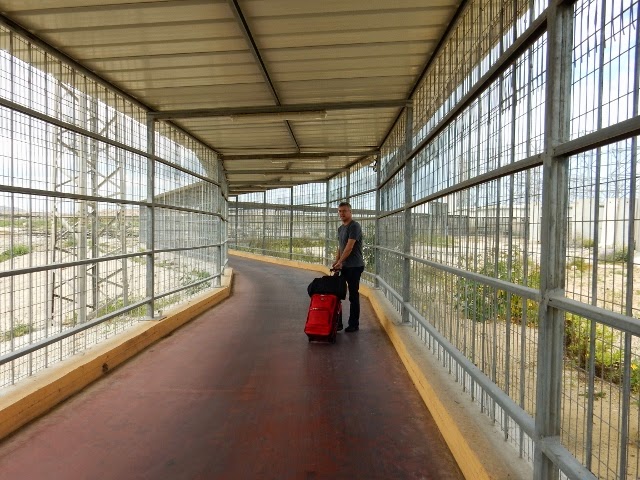 Eretz Crossing
Eretz Crossing
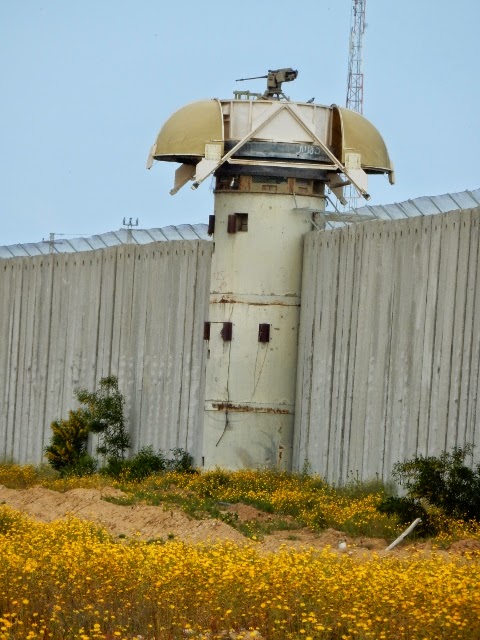 Eretz Crossing
Eretz Crossing
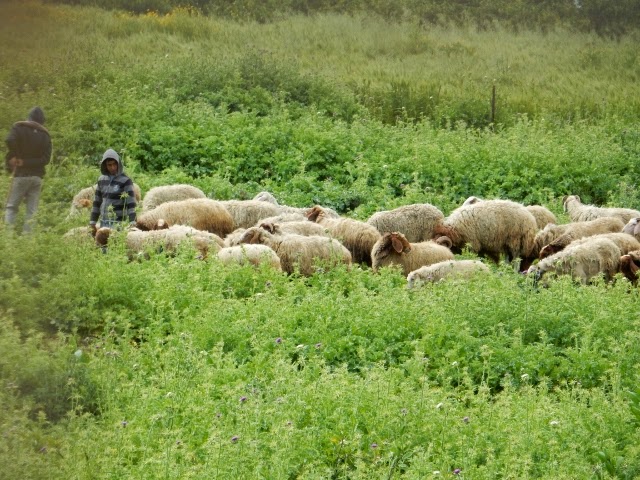 No Man’s Land – shepherds
No Man’s Land – shepherds
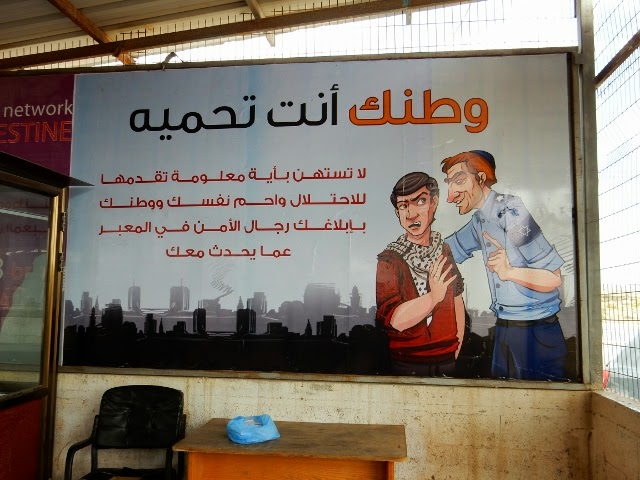
Hamas border control – ‘Don’t collaborate’